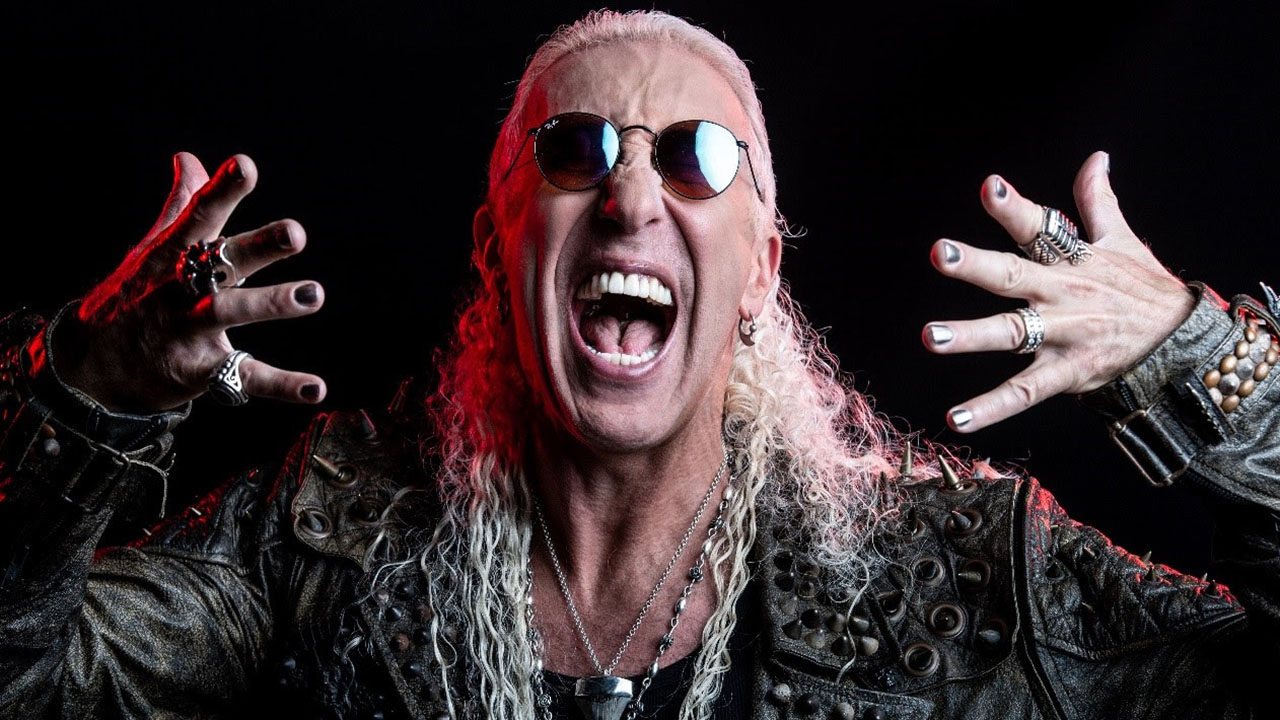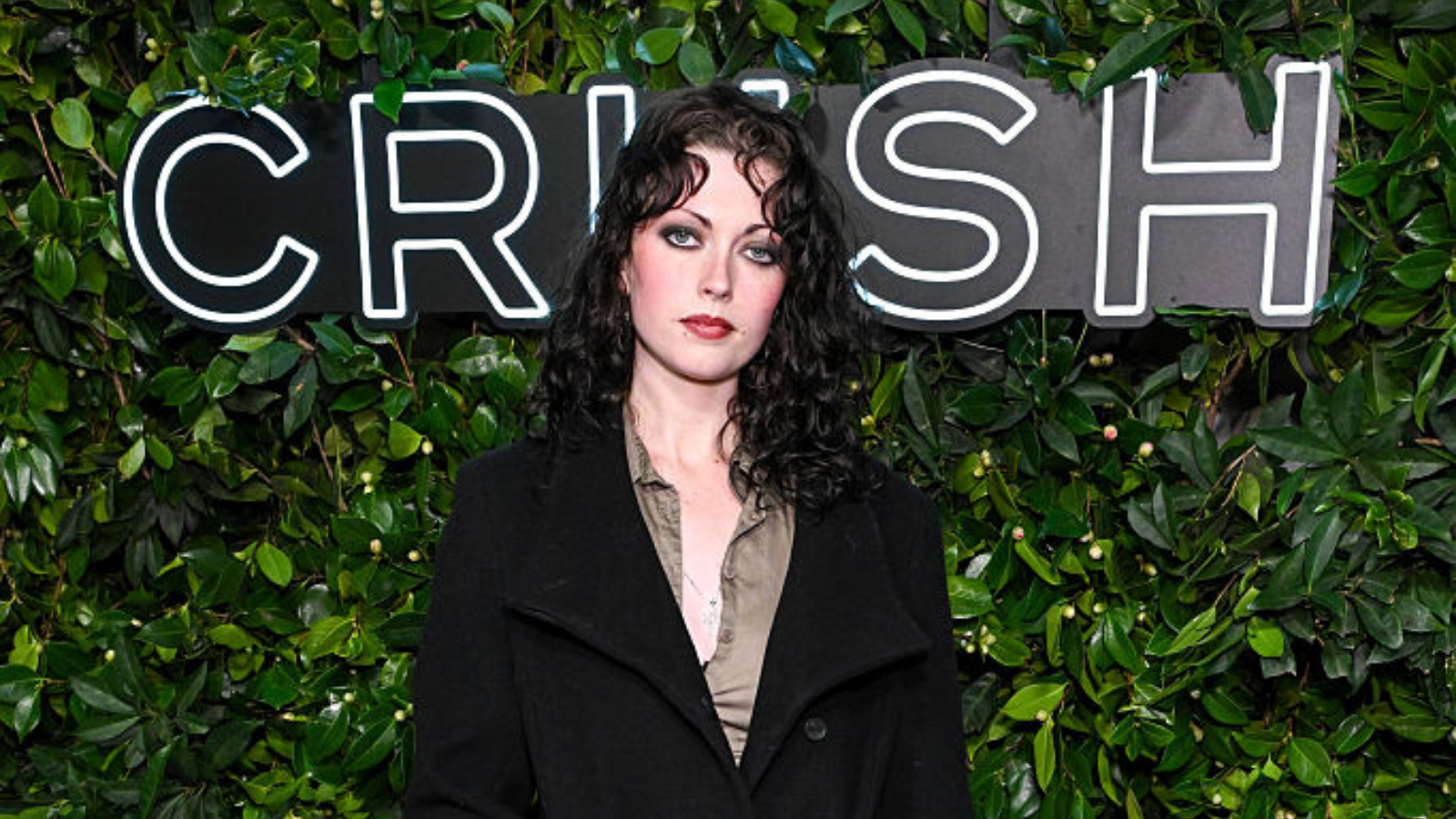Dee Snider: 8 songs that changed my life
Former Twisted Sister frontman and multi-faceted heavy metal renaissance man, Dee Snider selects eight songs that inspired his journey to the dark side

Choosing to take an extended time out from music in 2020 might prove to be one of the smartest decisions former Twisted Sister frontman Dee Snider ever made.
While many musicians kicked their heels in frustration as the year tested their patience, Snider finished his first novel. He was asked to direct two movies, and he wrote screenplays. "I’m no Nostradamus," he says, "but I got lucky."
Then he recorded a new album. And that's something he wasn't expecting.
"At the end of 2019, I had felt my recording and live performing was over, but I didn't announce it to the world," says Snider. "I mentally had decided I was done. But the state of things in 2020 had other plans for me. Between COVID and the political state around the globe, I found myself yearning (yes, I yearn) to get back in the studio. In the immortal words of Ice Cube, "I got somethin' to say."
The result is Leave A Scar, Snider's fifth solo album, which is released on July 30. And it's an album that suggests Snider isn't going through the motions: he really does have something to say.
"Leave A Scar is filled with messages to and for the silent voices in the world who need someone to speak out on their behalf," says the singer. "This is my purpose.”

The Beatles - I Want To Hold Your Hand (single, 1963)
As with so many other rockers of my vintage – Ozzy and Rob Halford among them – The Beatles were the flashpoint for launching me on this path. This was a game-changer. It has those wonderful harmonies, and the Ooohs and the Aaaahs, but it also has these hard, aggressive, clanging guitars.
Sign up below to get the latest from Classic Rock, plus exclusive special offers, direct to your inbox!
I was eight years old when this was released, and after hearing it on the radio, and then seeing that legendary Ed Sullivan show performance, that was it, I wanted to be a Beatle. I quickly realised that I couldn’t actually be a Beatle, but I could be a rock star, and that plan never changed.
Paul Revere & The Raiders - Kicks (1966)
I loved Paul Revere & The Raiders, at one point I had about 237 pictures of them on my bedroom walls. Their singer, Mark Lindsay, had a long ponytail at a time when no guys had long hair.
They were a popular band, but they had a heavier edge, both instrumentally – coming from the garage rock scene – and lyrically: Kicks was about taking drugs and another song Hungry was about sex. So they were a bit more taboo and dangerous. They were the band that got me seeking out louder, wilder music.
Grand Funk Railroad - Inside Looking Out (1969)
I was a day one Grand Funk Railroad fan. They were one of those bands where as soon as you heard them you were, like, Woah, what is this? They were a hard rock power trio, and, like Blue Cheer, they were more animalistic than their peers. Inside Looking Out is a killer cover of an Animals song, and I remember playing it when I was bassist in one of my early bands.
The Woodstock generation loved everything, they’d cheer for The Doors and Richie Havens or whoever, but Grand Funk were one of the first bands to draw a line: you either loved them or hated them.
Mountain Mississippi Queen (1970)
Mountain were such a powerful band. I was friends with [Mountain guitarist] Leslie West, and when you walked in to any of those guitar conventions with him, it was like walking in with a god, because guitarists, especially metal guitarists, just bowed down to him, as everyone knew that he was one of the guys at the forefront of bringing distortion and those heavy tones to rock music. Mississippi Queen is a true rock anthem.
Black Sabbath - Black Sabbath (1970)
[Sings] Dang, dang, daaaaaaaaaang! The Devil’s Third, the basis of all heavy metal, and the cornerstone of Sabbath’s life-changing sound. Sabbath started out as a jazz-blues fusion band named Earth, but when Tony Iommi first played this and saw the audience reaction, they knew they were onto something new.
I first heard this at a high school battle of the bands, I was in the audience, and one of the bands played it with all the lights out, and I literally went, What the fuck is this? I bought the album the next day, and that was it, I was a Sabbath fan for life. In junior high school I had a band that only played Black Sabbath. You’d see Sabbath live and Ozzy would be all, ‘We love you!’ and all the kids would be saying, ‘We love you? Fuck that! We want evil, man, evil!’
Led Zeppelin - Communication Breakdown (1969)
Another ‘What the fuck?’ moment, another game-changing, genre-defining classic. When I heard this it was like, this is what I’m about, fuck Crosby, Stills and Nash, this is it! In terms of groove and tonality and atmospherics and musicality and range, Zeppelin showed everyone how it was done. This came out before Woodstock, obviously, but it was one of those songs which signalled the arrival of a new era.
Alice Cooper - I’m Eighteen (1971)
Alice Cooper were trying to be a psychedelic rock band, but they were terrible at it, and they ended up creating something much more unique. I’m a teenager, trying to find myself, and here’s Alice screaming, “I’m a boy and I’m a man” and “I’m 18, and I don’t know what I want” and he’s speaking directly to me.
He wasn’t being poetic or philosophical, he was raw and in-your-face, and I got it, instantly. A significant part of my own vocal style came from hearing Alice and trying to capture that aggression.
AC/DC - Sin City (Powerage, 1978)
The final piece in defining me as a singer and songwriter and vocalist. I saw AC/DC perform this on a TV show called The Midnight Special, introduced by Steven Tyler and Ted Nugent, and again it’s [sings the Sin City riff] and I’m going, again, What the fuck is going on?
I was already writing songs – busy, heavy, metallic songs – and then I see AC/DC playing four chords – Dang! Dang! Dang! Dang! – and I realised, you don’t need all this other stuff, this is rock ’n’ roll. And then Bon Scott’s nasal vocal was the final part of the Dee Snider vocal jigsaw – a little bit of Dio, a little bit of Alice, a hint of Robert Plant, and then Bon Scott. I covered Highway To Hell on my live album [For The Love Of Metal - Live], and that’s me trying to honour AC/DC.

A music writer since 1993, formerly Editor of Kerrang! and Planet Rock magazine (RIP), Paul Brannigan is a Contributing Editor to Louder. Having previously written books on Lemmy, Dave Grohl (the Sunday Times best-seller This Is A Call) and Metallica (Birth School Metallica Death, co-authored with Ian Winwood), his Eddie Van Halen biography (Eruption in the UK, Unchained in the US) emerged in 2021. He has written for Rolling Stone, Mojo and Q, hung out with Fugazi at Dischord House, flown on Ozzy Osbourne's private jet, played Angus Young's Gibson SG, and interviewed everyone from Aerosmith and Beastie Boys to Young Gods and ZZ Top. Born in the North of Ireland, Brannigan lives in North London and supports The Arsenal.
